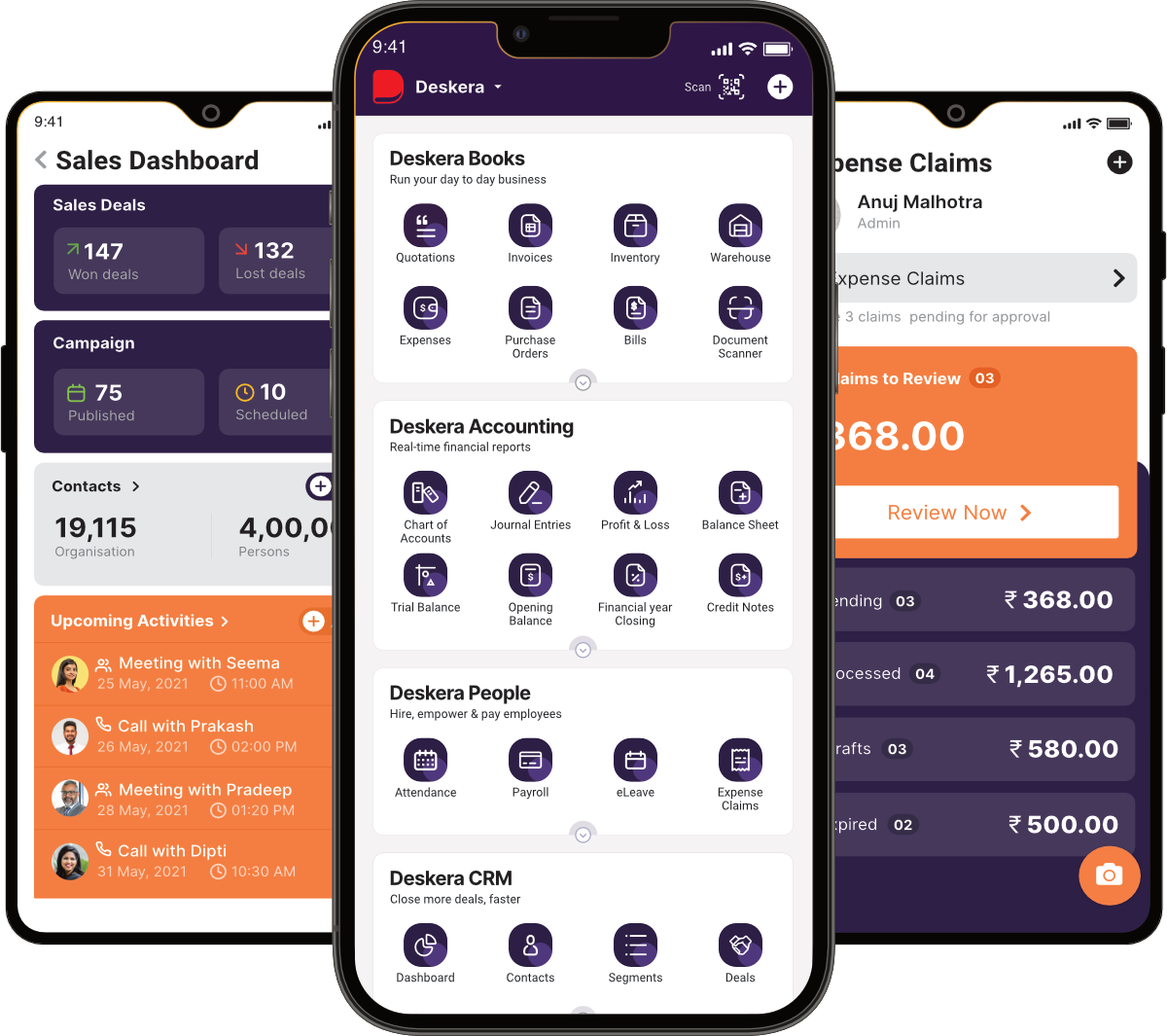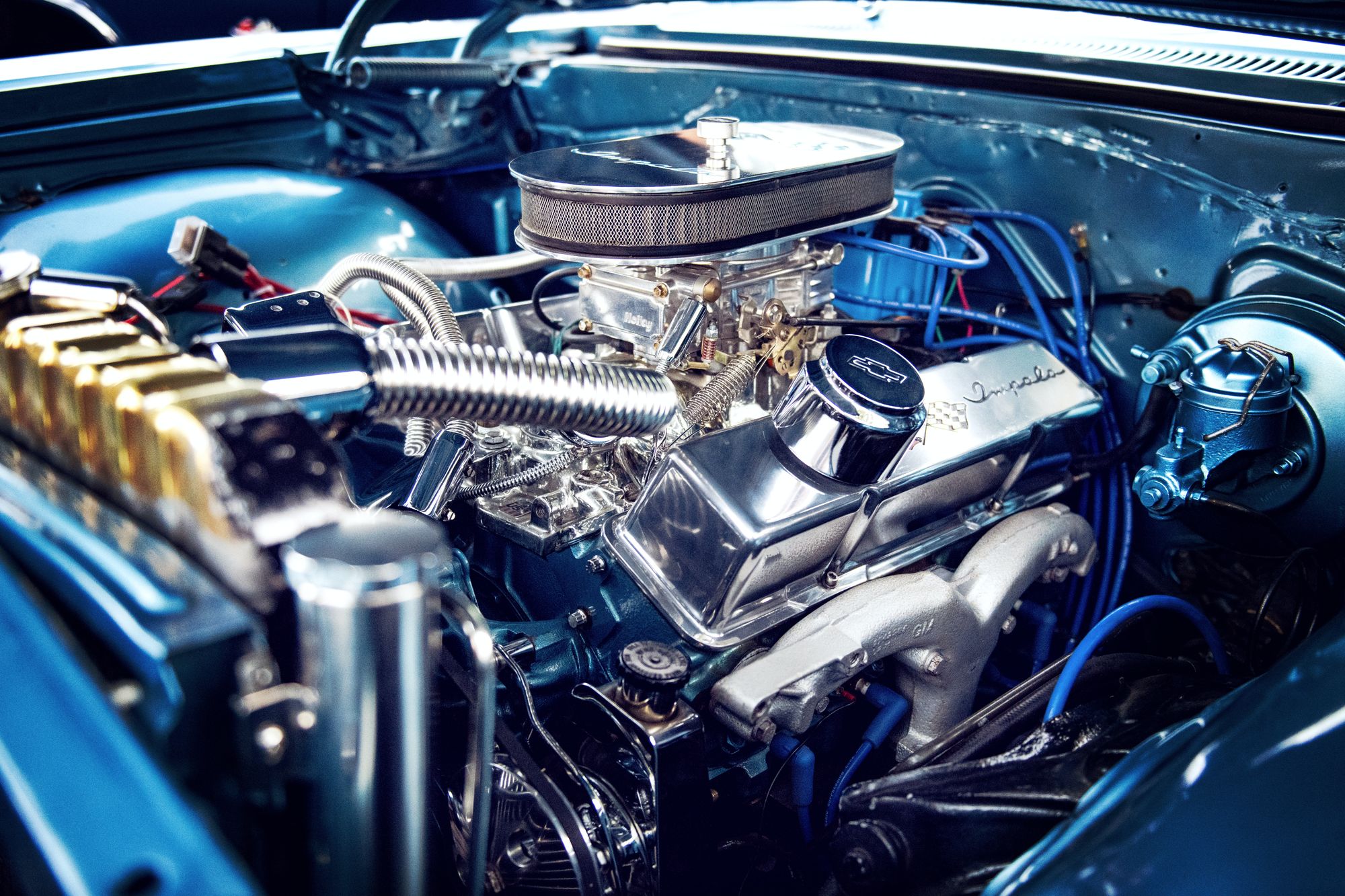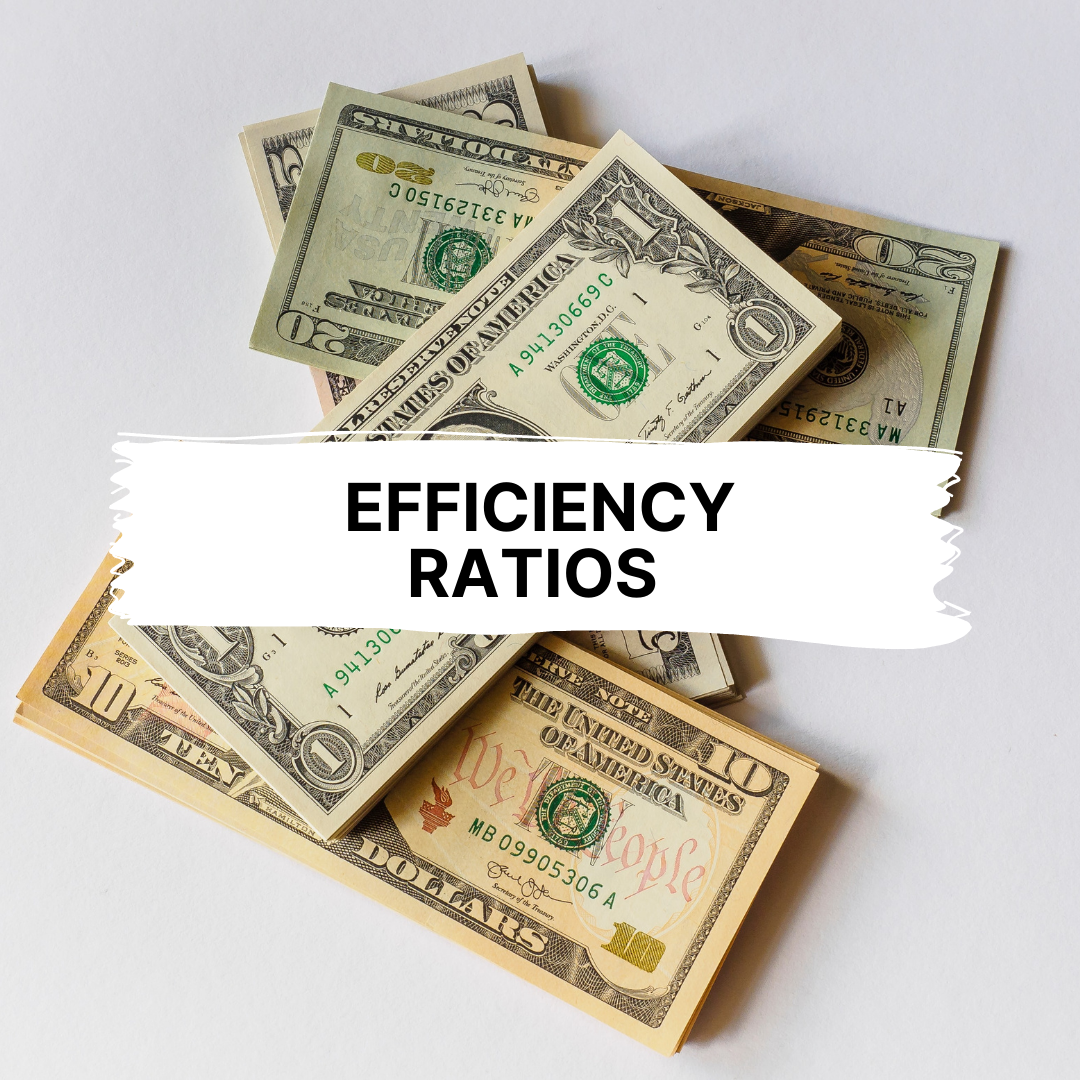The auto industry accounts for 3% of America’s GDP while employing 923,000 Americans in the manufacture of motor vehicles and parts and 1,251,600 people employed by Automobile dealers.
These statistics are enough to prove that the automobile industry is one of the most massive operations in the United States. In fact, in 2020, the United States was ranked second in the global automotive market with the production of 8,822,399 vehicles.
The average hourly pay of an auto manufacturer employee is $25.51 as of November 2021, while that of automobile dealership employees is $25.41 as of October 2021. Both of these figures have seen a rise of 3.5% and 3.6%, respectively, as compared to their previous years, which is a good indicator of the industry’s recovery post-pandemic. In fact, the automotive market in North America is predicted to expand at a compound annual growth rate (CAGR) of around 7.22%. Many off-road accessories making companies, contribute significantly to the automotive industry's dynamic market, aligning with the United States' position as a global leader in vehicle production.
However, globally, the automotive industry has the smallest research and development spending at 16%, despite it being the highest contributor to greenhouse gas emissions. In the USA, the automotive industry spends $18 billion each year on research and development.

Today, the US automobile industry is worth $82.6 billion, with auto manufacturing ranking as the fifth biggest in the nation’s durable manufacturing industry, and these figures are only increasing.
Thus, considering the vastness of the automobile industry, as well as the complexities lying therein, it is vital for businesses associated with this industry to have ERP software. An ERP software like Deskera comes with powerful and strategic business process management tools that will assist in managing the information within an organization.
ERP software will thus help in increasing the revenue from this industry, customer retention, higher gross profits and net profit ratios, better financial statements, financial KPIs, and business metrics, as well as the continued success of this industry.
The topics that will be discussed in this article are:
- What is ERP?
- Need for ERP in Automobile Industry
- Challenges Faced by the Automobile Industry
- Benefits to Expect from ERP Software in Automobile Industry
- How will ERP Help the Automobile Industry?
- Factors to Keep in Mind Before Adopting ERP Software in Automobile Industry
- How Does Deskera Help With an ERP for the Automobile Industry?
- Key Takeaways
- Related Articles
What is ERP?
ERP, also known as Enterprise Resource Planning, consists of systems and technologies that companies use to manage and integrate their core business processes. This involves accounting, project management, procurement, supply chain operations, enterprise performance management, and risk management, and compliance to highlight the key processes that can be automated through ERP.
An ERP software hence helps to manage day-to-day business activities by tying together a multitude of business processes and enabling the flow of data between them. In fact, by collecting your organization’s shared transactional data from multiple sources, ERP systems eliminate data duplication, thereby providing data integrity.
One of the other advantages of an ERP system is that it can either be on-premises and can also be on the cloud, making it and the data therein accessible to everyone and from everywhere. This thus helps in managing all the production-based or distribution businesses.
A system of ERP imparts transparency to all your business processes by tracking all aspects of production, logistics, and financials. These integrated systems act as a business’s central hub for end-to-end workflow and data. Access to this workflow and data is given to a variety of departments of an organization, as required.
Thus, since the lifeblood of every modern company is data, ERP makes it easier to collect, organize, analyze, and distribute this information to every individual and system in an organization that needs it to best fulfill their role and responsibilities.
Need for ERP in Automobile Industry
Globally, the automotive sector is one of the largest industries in the world, providing employment to one-third of the world’s population, either directly or indirectly. This is one of those booming industries which is expected to rise above $115 billion by the end of 2025.
While the automotive industry is one of the most promising industries, its vast size itself promises complexity in maintaining the day-to-day records of any and every company that is associated with this industry. Additionally, keeping an overall watch over the entire system to ensure smooth and efficient working of the company is also tedious.
This is because, for instance, the automobile industry has many steps in its manufacturing process itself, like- assembling, polishing, testing, and many more. To be able to monitor and control all these steps with ease and efficiency, the adoption of ERP is vital in the automobile industry.
In fact, in the automotive industry, growth and success depend on the product, along with the combined functioning of the right quality, quantity, production flow, and rotation time. Even in this, it would be a system of ERP that would be most useful and helpful.
Through an ERP, the automobile industry will be able to:
1.Quality Control Management- Through an ERP, you will be able to seamlessly track the products in real-time while taking note of the problems that are occurring, as well as their corrective measures. An ERP in the automotive industry will thus help in aiming and ultimately producing high-quality standards of automobile products. This, in turn, will help in the development as well as maintenance of good customer relations, with a higher ratio of returning customers and strong customer loyalty towards you.
Considering that it is crucial to maintain the quality of vehicles in the automotive industry and to ensure that the products undergo various safety tests and standard norms and that an ERP will help you secure that, thereby letting you meet the regulatory standards and even comply with the quality control management system, ERP is a lifeblood for the automotive industry.
2. Inventory Management- One of the most vital parts of the automotive industry is sales and manufacturing. In order to maintain adequate quantities of resource material, inventory management is required, which is where ERP is again a savior for this industry as it comes with inventory management protocols that remove all the hurdles that would have come in the way of proper and efficient inventory management.
Without an ERP, the automotive industry cannot deliver their orders timely as the company would not have been able to manually and efficiently manage upgrades and customizations. This gives an additional reason for the need for ERP in the automotive industry. Now, with the help of an ERP, vehicles can be ordered and stored at the dealership studios.
For example, you are a company that builds cars by procuring parts and components from multiple suppliers. Now, in order to track the requisition and purchase of these goods and to ensure that each component across the entire procure-to-pay process uses uniform and clean data connected to enterprise workflows, business processes, reporting, and analytics, you use an ERP system.
Another example is you are an automotive manufacturing company, and you have deployed an ERP system. Due to this, a component known as front brake pads, as manufactured by you, is uniformly identified by part name, material, size, lot number, source, supplier part number, cost, serial number, and specification, along with a plethora of other descriptive and data-driven items.
Further on, the use of the ERP system will also ensure that the above-mentioned attributes and data fields roll up to the correct account in the company’s general ledger so that all the costs are properly tracked and represented.
This is very important for calculating various figures like the cost of goods sold, gross profit, etc., because if, for example, front brake pads were called front brakes in one system, brake pads in another, and front pads in the third, and it would become tough for your manufacturing company to figure out how much is actually being spent annually on front brake pads, and whether for example it should switch suppliers, or negotiate for better pricing.
Considering that ERP systems can bring solutions for aspects like inventory management, customer relations, product delivery, marketing inefficiencies, and shipping, ERP systems are important for the automotive industry.
More so because when the various features of ERP combine, it traces and analyzes every departmental action of your organization to exercise better control over actions that lead to productivity and efficiency.
In fact, according to reports, the global ERP software market is projected to reach $78.40 billion by 2026, growing at a CAGR of 10.2% from 2019 to 2026, with the average budget per user for ERP software being $9000. The automotive industry will continue to play its role in the increasing demand and, therefore, the CAGR of the ERP software.
This highlights the tremendous growth that ERP has seen in the automotive industry, which is just the beginning. This is because the ERP software market in the automobile industry is expected to reach a size of around $50 billion by the year 2024.
Challenges Faced by the Automobile Industry
Being one of the vastest, most complex, fastest-growing, and expertise-based industries, the automobile or automotive industry in the USA has its own set of challenges that hamper or try to hamper the growth, development, and successes of businesses in this industry. These challenges include, but are not limited to:
Quality Maintenance
In the automotive industry, quality is a key factor in the products and components that are delivered to the customers. This is because consistency and safety are a must for the customers of this industry, and if this is not delivered to them, then the businesses of this industry lose customers.
The challenge here is that the automotive industry comes with its large processes with several steps in between before the final product is made and delivered. Ensuring regular quality checks and compliance with the standards and quality laid down by the authorities becomes a hassle when done manually, bringing with it a risk of lots of wastage of resources in terms of time, manpower, and even raw materials and components.
One of the reasons for this is also that, more often than not, the varied steps of the business processes of this industry are carried out across different warehouses, or different locations or departments of the plant, or even by different vendors. Manually integrating all these different sources becomes next to impossible without leaving gaps for errors in between.
Having an ERP system, its automation, and all its seamless integration of data across different departments, warehouses, and vendors thus become a boon in quality maintenance.
Maintenance of Production Facilities
Considering the equipment and technologies that go into the production in the automobile industry and how vital it is that each step of production is taken at the time and in the manner and quality that it is supposed to happen in is definitely a challenge for this industry.
This is because finding a time when the equipment is free from their production cycles and having a team ready at the exact moment to carry out the maintenance or corrective measures is as complex and tricky as it sounds. Additionally, being able to carry out the maintenance or corrective measures right before it hampers the production and products is also based on lots of historical data, prediction, and scheduling.
With all the wide-ranging equipment and other production facilities that each business in the automotive industry will have, the several steps in the business processes and production, and the different locations as well as vastness, maintenance of production facilities is definitely a humongous challenge in this industry.
Inventory Management, Control, and Forecasting
Inventory management, inventory control, and inventory forecasting is yet another critical challenge of the automotive industry because of the involvement of compilations of several components before the final product is made, several warehouses, factories, and vendors where the raw materials are stored or sourced from, intricate supply chains and long as well as complex business processes.
Considering this, one of the most common phenomena of this industry is overstocking or understocking of the raw materials or components needed to fulfill the customer’s demand. This is because of poor stock management, where instead of having a perpetual inventory system, a periodic inventory system is being followed. One of the reasons for this is also manual management of the inventory and its forecasting. This leads to cash flow problems, risk of loss of inventory, and storage issues in the warehouses.
Also, oftentimes, the sizable number of inventory and parts that are required by businesses in this industry are not assigned their SKU numbers properly, which further hampers inventory management. These factors negatively impact the inventory turnover ratio and consequently the profitability of businesses in this highly competitive industry.
Due to these reasons, accurate, efficient and timely production often gets disrupted, with an increase in the expenses, losses, and decrease in the revenue. Additionally, timely deliveries, which would otherwise have been possible, become a late delivery due to a lack of inventory management and forecasting or errors in the same.
In fact, limited visibility across the various departments, warehouses, and locations of the business in this industry is also one of the challenges, as this too can lead to delayed, inaccurate, or even incomplete shipments or deliveries. This problem is especially faced in the automotive industry also because it involves lots of customizations and upgrades.
Adding to this complexity are the global supply chains with the manufacturers and wholesalers determining what is shipped, when, and how, and coordinating between all these different lead times, tracking the shipments, and planning your production cycles and delivery times accordingly. This takes away a lot of resources to figure out in the automotive industry, taking away time from other more strategic objectives and goals.
One of the other challenges faced by businesses in this industry is warehouse management, which includes managing the space in the warehouse for storing of the inventory and deciding the timings of the delivery of new inventory accordingly. In an industry that involves lots of components and their compilation before the final product is made, this becomes a daunting task, especially when done without an ERP inventory management system.
Compiling the data and trends from different departments and sources and manually trying to forecast the customer demands and changes in the same also becomes long, tedious, and often prone to being outdated and having errors.
Having an automatic ERP system that does it all for you, including the ascertainment of inventory reorder point, the establishment of a just-in-time inventory system, and inventory management, as discussed above, is a solution for this challenge of the automotive industry.
Vendor Management
Another challenge faced by businesses in the automotive industry is vendor management. Vendor management is a process through which businesses manage their suppliers, also known as vendors.
This is because businesses in this industry tend to have a large supplier base, with a complex geographical footprint, which has made it difficult to gain a centralized view of the vendors used by the company. In an industry as vast, complex, competitive, and filled with long processes, vendor management has become a tediousness that is weakening the organizations rather than strengthening them.
The reasons behind this are the inefficiencies in vendor management are causing delays in production, customer dissatisfaction, extra costs and expenses, and unpredictability in the financial trends of the businesses.
Financial Management, Pricing, and Strategies
Considering the multiple departments and locations, multiple components and products, vast geographical footprint, and the several entries, re-entries, and sources of entries, financial management, pricing, and strategies have definitely become a huge challenge for the automotive industry.
Businesses in this industry are struggling with carrying out their objectives as satisfactorily and with the highest profitability as possible due to streamlining and integration issues within various departments, suppliers, customers, warehouses, etc.
This has impacted their ability to predict financial trends and outcomes for a month, quarter or year. It also has impacted their ability to make reports that are honest, accurate, and fulfilling all the compliance requirements. This brings with it the risk of being penalized for incorrect filings. Additionally, auditing has also become a task for the businesses in this industry.
Another challenge associated with financial management is also quotations given to the customers. Sometimes, because all the financial information is not integrated, wrong quotations based on the available albeit incomplete financial information are given to the customers, bringing loss to the company.
With this lack of proper financial management, deciding pricing and pricing strategies as per the ongoing trends of your business, industry, and the market has become next to impossible, with higher chances of the financial forecasting being either incorrect or outdated. Even if everything is accurate, it does take away a lot of resources in the form of manpower and time, leaving other areas which definitely cannot be automated unattended.
Access to Documents and Data
In the automotive industry, one of the other challenges faced is the absence of access to the required documents and data across locations and departments because it is not integrated and streamlined on one unified platform.
Due to this, delays in the business processes are caused, causing a hassle and wastage of resources like time and workforce to address this challenge. On the larger scale, this risks spoiling the relationship with the vendors and customers and, in certain cases, even brings the risks of non-compliance with the statutory requirements and obligations, including providing data and documents to the inspectors of the industry.
Human Resource Management
This is again a critical challenge for the automobile industry, considering the number of people it employs. A large number of resources, including time and workforce, go into fulfilling the HR-related tasks and requirements.
This involves finding the right employees and carrying out their on-boarding processes, ensuring the new employees are given the required training, transferring of wages and salaries at different time intervals and in different accounts and as per the decided amount on a timely basis, and retaining top talents and experts of the industry, sending out talent acquisition emails, sending out information emails, like a holiday list, taking updates on the taken and pending leaves of the employees, and approving their leaves accordingly, and so on.
The sheer number of people employed with HR-related tasks, which, because done manually, are still prone to more errors, is just very high and has become a huge cost and hassle for this industry. It has also ended up shifting of focus on the administrative tasks from the strategic tasks. Thus, automation in the human resource management through an ERP system has become a must to solve this challenge in the automobile industry.
Benefits to Expect from ERP Software in Automobile Industry
While the implementation of ERP does require a considerable amount of financial resources, time, and coordination among different departments of your automotive industry-based organization, its benefits will outweigh all these initial inconveniences and efforts. The benefits to expect from ERP software in the automobile industry are:
Reduced Costs and Higher ROI
While ERP packages are not very cheap, they do help you in saving your money by consolidating all the systems into a single interface, including but not limited to product development, supply chain management, finance, inventory management, and customer relationship management. It does so in the manner that it saves on expenses out of lack of integration and losses occurring therein. It also helps in maximizing the net profit ratio by securing all the clients and timely production and delivery, and by reducing errors, and so on.
Through an ERP, you would be able to bring cost efficiency by streamlining the automotive industry’s business processes. This also means that simultaneously with reduced costs, ERP systems will give higher returns on investment (ROI) as an ERP optimizes production, gives greater visibility of business processes, increases the efficiency of business processes, and improves customer satisfaction.
Smooth Collaboration and Communication
An ERP eliminates the need to manually add data from different software systems and processes, because now different teams can share the information or data on a single platform securely, which will be automatically integrated by the ERP system.
Analytics and Reports
Through an ERP system for your organization in the automotive industry, you and your team will be able to smoothly process and generate various reports like expense statements, income reports, sales reports, inventory level reports, financial KPIs, financial statements, business metrics, marketing KPIs, and more.
These will then help in making better decisions, as well as enable you and your team to have more effective responses to situations that have occurred unexpectedly. Moreover, you would no longer have to rely on a dedicated team of IT professionals to access these ERP reports.
Enhanced Productivity
While the processes of an automotive company’s business are complex, which gets added on with further complexities due to some factors that cost you time, money, and at times even your brand’s image, a good ERP system will make it easier for you by taking care of the repetitive tasks, and by ensuring that each resource and every minute is utilized to perform productive tasks to maximize profitability. Further on, a good ERP system also comes in with a built-in customizable calendar and reminder setting system, thereby ensuring that you meet all the compliances and deadlines on time.
Better Customer Service
An ERP supports not only the internal processes of your automotive company but can also help in improving your customer support, ensuring that you are giving proactive customer support that will help in increasing your customer retention. It does so by letting you set up an FAQ, as well as by showing you a page that highlights all the customer tickets that have been resolved and those which have not been resolved.
Furthermore, it also improves your marketing tasks like reaching out to a large base of audience, addressing leads, and converting leads into sales by having a system of automatic mail with all the updated mail addresses, as well as a list that highlights the preferences of your customers, thereby letting you customize your communications accordingly.
Smart Production and Inventory Management
For smooth and uninterrupted production, the automotive industry relies heavily on the constant availability of inventory. ERP systems for your organization in the automotive industry will help by simplifying the inventory management processes and preventing excess or less inventory-related issues, thereby saving you time and resources and making your overall operation more efficient.
In fact, through this system, the management or the concerned personnel will be able to obtain accurate information on how much inventory is present, and the expected level to be maintained, and the steps to be taken.
Easily Maintain Regulatory Compliance
Automotive businesses are obliged to comply with a number of regulations, especially those relating to safety and pollution norms, which have a tendency to change suddenly.
By implementing an ERP system that has the modules and the functionality to handle such regulatory compliances, you will be able to ensure that your business adheres to all the compliance requirements, which will improve or maintain your image in the eyes of the law enforcement while saving you from penalties.
Additionally, such a system will also generate all those reports that you are required to submit to the regulatory authorities. Thus, an ERP system will make your life easier and better in these situations as well.
Warehouse Management and Optimization
Automotive manufacturing is a complicated and lengthy process that requires a range of Bill of Materials (BoMs) and multiple processes to produce finished products.
This thus makes warehouse management an important process and feature offered by the ERP systems, which facilitates the execution of warehouse transfers, generates reports, tasks, and transactions on the plant floor, manages inbound and outbound transfers, label printing, bin management, barcode scanning, and lot more of such tasks. Thus, with the centralization of the SKU and BOM management processes in the ERP, they become more efficient.
Electronic Document Management and Collaboration
Today, organizations encourage open space culture, where relying on mobile devices and other gadgets that keep them updated 24/7 is normal. An ERP system caters to these trends and lets you view, edit, and manage every document, report, purchase order, sales order, account payables, account receivables, and other such files on the same platform.
Now, employees of your automobile organization will be able to know the status of inventory, orders, quality of goods, allocated resources, and more through this system and the data input in it. This thus creates a collaborative workplace that eliminates communication glitches and even helps in managing workplace stress.
Data Security and Compliance
If you are in the automobile industry, whether as a manufacturer of electrical or brake parts, engine parts, drive transmissions, and steering parts, or other automotive components, then it is important that you align and design every component in your organization in a way that meets regulatory compliance.
This is because industry regulation will influence you as a manufacturer in a few ways, like how the products are handled, how the products are shipped and distributed, and to who the products are shipped and distributed to.
ERP systems will let you address these specifications by offering quality management functions that facilitate compliance with quality standards and manufacturing regulations to adhere to fulfill the quality parameters.
Accurate Management of Supply Chain
As an automobile manufacturer, you strive to deliver unmatchable customer value so that you can drive your sales and build a good rapport. An ERP system will let you achieve this by managing the mission-critical parts of your organization. This system will keep your inventory aligned, plan for the material and resources required for production, manage supply and demand balance, and keep the data safe. To do so, your ERP system will offer all or some functionalities like:
- Material Requirement Planning
- Master Production Schedule
- RCCP and Pegging
- Simulation and Actual Run
- Time Fence
- Lead Time Calculation for FG
- Global/Individual Company Planning
Comprehensive Traceability
As someone who is part of the automobile industry and is a manufacturer, it is very important to abide by government regulations. This also involves shipping a bunch of quality goods at the right time because if you don’t, your business’s goodwill and customer satisfaction will get affected directly. ERP system will help you track your resources with precision by its facilities, letting you track individual bins, resources, packages, and all the processes included.
As an auto components manufacturer, you should be able to seamlessly track which product lots have been produced, where they went for the production process, who is handling them, And where they will be stored in the warehouses. Traceability through the value chain is important so that products are not recalled, and plans are executed as devised.
Also, as communication and electrical components are integral parts of every vehicle, quality and reliability become the topmost priority which is fulfilled through ERP systems.
Increased Real-Time Data Access
ERP systems allow users to streamline the information flow within an organization. It consolidates the data of every department and empowers all the key decision makers to have access to this information, edit it, manage it, and even make quick and informed decisions based on it as and when required.
Up-to-date information is needed by those in the automotive industry, and this is given by the ERP, whether it is on resource availability, information on customers, employee management, manufacturing status, and so on.
How will ERP Help the Automobile Industry?
Implementation of ERP systems in the automobile industry will reap unlimited business benefits. An ERP software in the automotive industry will help in meeting the desired requirements of the highly competitive automotive business industries. It will do so by analyzing the latest trends in the markets, streamlining of every business function, and through timely reporting of faults and failures.
An Enterprise Resource Planning software will be such a boon to the automotive industry that it will be able to overcome every industrial challenge pertaining to this industry, including, but not limited to inventory management and high-quality product delivery, customer relations and services, on-time shipping, labor inefficiencies, changes in statutory compliances, and marketing.
ERP software in the automotive industry will thus help you in achieving all the goals of your company, including fulfillment of marketing objectives, while also redefining your company’s strategies to achieve better development and production.
This is also because the comprehensive set of features of ERP in the automotive industry will help in tracing and analyzing every departmental function while also initiating better control of actions which will lead to more productivity and efficiency in your business.
One of the major challenges that any business in the automotive industry faces is stiff competition and a constantly developing market, with changing demands from buyer personas. This often pressurizes the other organizations in this industry to bring to life new and innovative products, reduce their operational costs, come up with environmentally friendly options, increase their speed and efficiency of production, and so on.
With the help of an ERP implementation and an ERP system, you would be able to efficiently and adequately synchronize various business production processes pertaining to the different stages. Additionally, an ERP in the automotive industry will also help you transact adequate information realm across different business departments in your organization.
Some of the most important ERP features that will bring qualitative changes in your organization in the automotive industry are:
Quality Control Management
One of the rising challenges in the automotive industry is the growing importance of quality control management due to government regulations and standards, as well as the expectations of the customers. ERP systems come equipped with features that assist in quality control management, thereby helping organizations like yours with quality planning, quality controlling, quality assurance, and quality improvement of automobile products.
It does so through seamless tracking of the products in real-time, taking note of the problems that occur and their corrective measures. This will then help your organization to produce high-quality standards of automobile products.
Additionally, the products also have to undergo various safety tests and standard norms to ensure their quality. If a quality is not matched or requires rectification, then there is an alert system that notifies the concerned workforce of the same. Together, this helps in improving and maintaining strong customer relationships.
Preventive and Corrective Maintenance Management
An ERP system with features for preventive and corrective maintenance management will help organizations in the automobile industry in identifying, isolating, and rectifying the fault of machinery.
In the case of preventive maintenance, preventive measures like quality tests, measurement, and others will be undertaken in a timely manner with the assistance of the scheduling on the calendars on your ERP systems, which often come with features of alerts and reminders.
Additionally, the ERP system will also help you to easily organize your maintenance requests, track their progressions, and plan the other functions of the organization accordingly.
With such quality control management systems, you would be able to deliver high-quality products to the market in a timely manner. Also, with the timely undertaking of preventive measures, operational costs will be reduced significantly as well.
Efficient Inventory Management
Considering that there tend to be lots of upgrades and customizations in the automotive industry, an efficient and robust inventory management system facilitated by the ERP system will help in transacting clear communication between the concerned parties, elimination of the possibility of human error in information flows, and therefore smoother and timely delivery of orders.
Additionally, an ERP system will also let you order and store vehicles at dealership studios and be able to keep track of them. This also highlights one more advantage of having an ERP for your organization in the automotive industry, which is that you will get real-time information from anywhere in the world on the number and kind of vehicles that you possess.
Through the same system, you would be able to provide directions to the concerned departments on the kind of cars that are to be ordered to meet the customer's request. Thus, the ERP system will help you with realistic delivery, ensuring maximum customer satisfaction and efficiency in your business processes.
Furthermore, by using an ERP system, you and the concerned departmental heads and employees will be able to monitor several work locations from a single unified source, ensuring that no delay happens in mid, followed by attending to queries like returns and essential parts stock ups, defects, etc.
Another pivotal part of inventory management is shipping management which is also offered by ERP systems. Through this, you would be able to ensure that your customers get the right delivery of the product, and you would also be able to track the shipments in transit and be able to answer any queries regarding the same.
Not only this, but an ERP will also help in mapping the shipping process with projected costs, thus informing the end-users of the amount that they have to pay. In fact, you would even be able to generate an invoice for the same, for the concerned customers, through the ERP software.
Efficient Vendor Management
Implementation of an ERP system in the automotive industry will help in efficient vendor management, wherein on one platform that is accessible from everywhere and to everyone concerned, details of each vendor, a list of products purchased from them, and tracking links of the shipments already sent, list of pending orders and shipments, expected delivery dates, negotiated contracts, and prices decided upon will all be noted.
This will also help in analysis through the historical trends, and present trends of the vendors, as well as trends of the businesses and their orders, and inform the businesses of associated risks, letting you take preventive and corrective measures. An ERP will thus also monitor vendor performance while also paying them on time as per the agreed terms once the promised goods and services are received.
Hence, for example, if a shipment of forward brakes from a vendor might get delayed, but trends are suggesting that it would be needed to fulfill customer demands, then you would get a chance to find another supplier who is able to send you the shipment faster, and more on time, with at least the bare minimum quantity required. Thus, through an ERP, you will be able to make use of an opportunity while mitigating risk.
Vendor management is very important as the right vendor can ensure the success and growth of your business. Additionally, efficient vendor management helps in achieving business goals, harnessing opportunities, mitigating risks, preventing supply chain disruptions, maintaining of quality of the products, saving costs, increasing earnings, improving cash flow, and improving the health of the business’s financial statements, while also retaining the customers.
Financial Management and Pricing
An ERP will help you in keeping track of all your financial transactions, including total costs, total expenses, account receivables, account payables, gross profits, COGS, net profit, net profit ratio, credit notes, and debit notes, pending invoices, revenue, and many more. It will also help in consolidating these in their respective financial statements like balance sheet, bank reconciliation statement, income statement, profit and loss statement, and so on.
Further on, the relevant transactions will also get updated to your company’s general ledger and get added to your journal entries and processed as per the relevant accounting system and rules and taxation regimes to be followed. This will ensure compliance with all the statutory requirements, including federal and state taxes. The ERP will also make note of the registration fees, as well as its renewal due date, along with a reminder system for the same, which will again make compliance easier for you.
This aspect of the ERP system will also general relevant KPIs (key performance indicators) and draw up the updated performance of the relevant business metrics for analysis and decision-making purposes. It is all of this data that will give you insight into your business and business functions and the trends that it will get enveloped by in the coming days. Using this information, thus, an ERP will give you timely information for taking adequate cum necessary actions for establishing pricing patterns in the automobile industry.
Electronic Document Database
Implementing an ERP system in the automotive industry will help in storing, managing, and organizing company data and documents. The electronic document database will generate a storage space where the industry can create or generate any digital documents related to the business processes and functions.
With an ERP and its electronic document management, the organizations in the automotive industry will be able to store their large volumes of digital documents in a unified fashion and on one platform, which is accessible from anywhere and at any time. The main benefit of having all your documents on your ERP system is the efficient and timely retrieval of documents for additions and deletions.
Human Resource Management
ERP in the automobile industry facilitates efficient human resource management, which will thus help in reducing the time spent on administrative tasks by the organization. Considering the vastness of the automobile industry and the large number of people that it employs, ERP will make their life easier, prevent errors, and make all the HR-related tasks easier.
This is because, through an ERP, all the information pertaining to an employee like his contact details, work hours, wages, bonuses and deductions, overtime, performance evaluations, employee benefits, details of dependents, job roles, etc., will get streamlined. Additionally, the employees can be grouped based on their credentials and job roles in an ERP system once implemented in the automobile industry. This will help in quick tracking, as well as allotment of work according to a person’s expertise.
In fact, an HR management system that is executed under the ERP software helps in easy decision making on an employee via tests, evaluations of his or her performances, and timely assessment of the same, and then notifying the employee whether he or she got the job or not.
Right from the recruitment of the right talents, looking after the onboard training, attendance and leaves, performance evaluation, compliance with HR norms, employee appraisal, monitoring the payroll benefits, transferring of the wages and salary directly to the employee’s bank account, and other allowance to his retirement benefits, all these aspects are taken care of by the ERP system implemented by the organizations in the automotive industry.
Thus, ERP in the automotive industry will help in shifting the focus on achieving strategic goals and objectives rather than attending to administrative tasks.
Factors to Keep in Mind Before Adopting ERP Software in Automobile Industry
While having an ERP System sounds like a lucrative thing to have for your organization which is a part of the automobile industry, it is important to ensure that your organization is ready to shift to an ERP system and has all the resources available for using it. Only if you ensure this will you be able to utilize the ERP system up to its full worth. Thus, some of the factors to keep in mind before adopting ERP software in the automobile industry are:
Company Readiness
Make sure that your organization has the proper resources to support the ERP software. These resources include human as well as financial resources. You should also make sure that your company and your employees are prepared for this new change.
What needs to be realized is adopting an ERP system will require lots of time and effort, and if your company has other problems to solve, then you should delay this implementation to a later date when you have the space, time, resources, and readiness to embrace and adapt to this change.
Choosing the Best Suitable Service Provider
In today’s market, there are several ERP software providers. However, it is up to you to choose one that is the most suitable for your company, based on the factory standards and requirements.
This is a very important aspect to look after because a wrong ERP that does not match the factory standards can bring down your entire business due to its misjudgment. Moreover, besides affecting the rate of operations, such ERP software will become an extra hassle for your employees without any benefits.
Services that the ERP will Provide
Other than a few essential services that are provided by every ERP solution provider, different ERP solution providers give different facilities and features. It is based on these features and facilities and your company’s requirements that you should choose an ERP solution provider for yourself. Usually, an ERP system must include workstation scheduling, inventory management, competition monitoring, OEM, and SCM, to be the most useful to your company in the automobile industry.
The Versatility of the ERP Software
Before choosing an ERP system, it is vital to know in advance whether that particular system is flexible to use or not. Nowadays, every ERP software is available as SaaS, which makes it accessible from any device anytime, thereby giving a lot of freedom while using the software. This also allows different multitasking processes at a time.
Security of the Platform
Considering that your ERP system will have the most sensitive information about your entire business, it is very important to check its security. The level of its security will help in determining the risk of data loss or data theft.
Also, having a secured cloud backup of the data on your ERP system will keep your data safe and prevent it from being lost. Usually, a cloud-backed ERP system comes with automatically scheduled backups to prevent any kinds of data loss and failure. In this case, it would be the cloud provider who will manage the data security, updates, and storage.
How Does Deskera Help With an ERP for the Automobile Industry?
Deskera delivers a fully integrated, fully compliant, and quick-to-deploy ERP software solution. It is a web-based business management software that provides a real-time, holistic view of your business in the automotive industry. In fact, Deskera ERP is one of the most preferred software for seamless business operations and scaling with multiple business units.
The integrated ERP tool of Deskera helps organizations manage multiple locations and stay connected using a centralized data source, which is shared across all teams and locations.

Deskera ERP comes with the accounting specialist Deskera Books, which will let you automate all your accounting tasks, including invoicing, billing, expenses, payments, taxes, reporting, approval flows, multiple currency payments, and payment getaways, generation of financial statements, and KPIs, and many more. It makes it easy to comply with the statutory requirements as well.
Deskera CRM is its specialized software for growing your customer base with ease through email marketing, CTAs, landing pages, proactive customer service that includes email and chats, help desk options, and so on. It is also the go-to software for automation of sales, finalizing deals and shifting them through their respective stages on the sales pipeline, and getting real-time insights of it all on the dashboard.
Lastly, Deskera People is its HR specialized software through which you can handle the payroll of your employees and transfer it directly to their bank accounts as per the industry-specific timelines, auto-deduct the deductions from the salaries of your employees, handle their leaves, track their attendance, approve or reject their leaves, set-up ad hoc pay runs for bonuses, etc., make customized job applications, design your own hiring workflow, and even have payroll insights. With this software, you would also be able to stay compliant with the USA statutory regulations like Forms W-2, W-4, and so on, as is applicable to your business in the automotive industry.
Thus, with Deskera ERP, you would be able to eliminate data redundancy, streamline all operations, and increase the productivity and profitability of your business.
Key Takeaways
The Automotive or Automobile Industry of the USA is one of the largest industries that contributes 3% to its GDP, and it's ever-expanding. This comes with its own set of challenges like:
- Quality maintenance
- Maintenance of production facilities
- Inventory management, control, and forecasting
- Vendor management
- Financial management, pricing, and strategies
- Access to documents and data
- Human resource management
Implementation of ERP systems in the automotive industry comes with qualitative as well as quantitative benefits. This is because it facilitates:
- Real-time access to information
- Integration of various supply chain activities
- Simultaneously controlling and monitoring multiple projects
- Enterprise visibility and transparency
- Operational excellence and reduction in errors
- Improved customer satisfaction, service, and relationship.
- Robust inventory management
- Efficiency maintenance
Implementation of ERP in the automotive industry thus helps in integrating both internal and external processes of this industry, thereby helping in constructing a successful and profit-oriented business.
One of the best ERP systems that you can resort to for your business in the automotive industry is the Deskera ERP system because it will easily let you migrate all your data into the system, create a centralized data source for your business that is also backed up by the cloud and is accessible from different locations to different people, and effortlessly streamline and integrate all your business processes.
Related Articles











